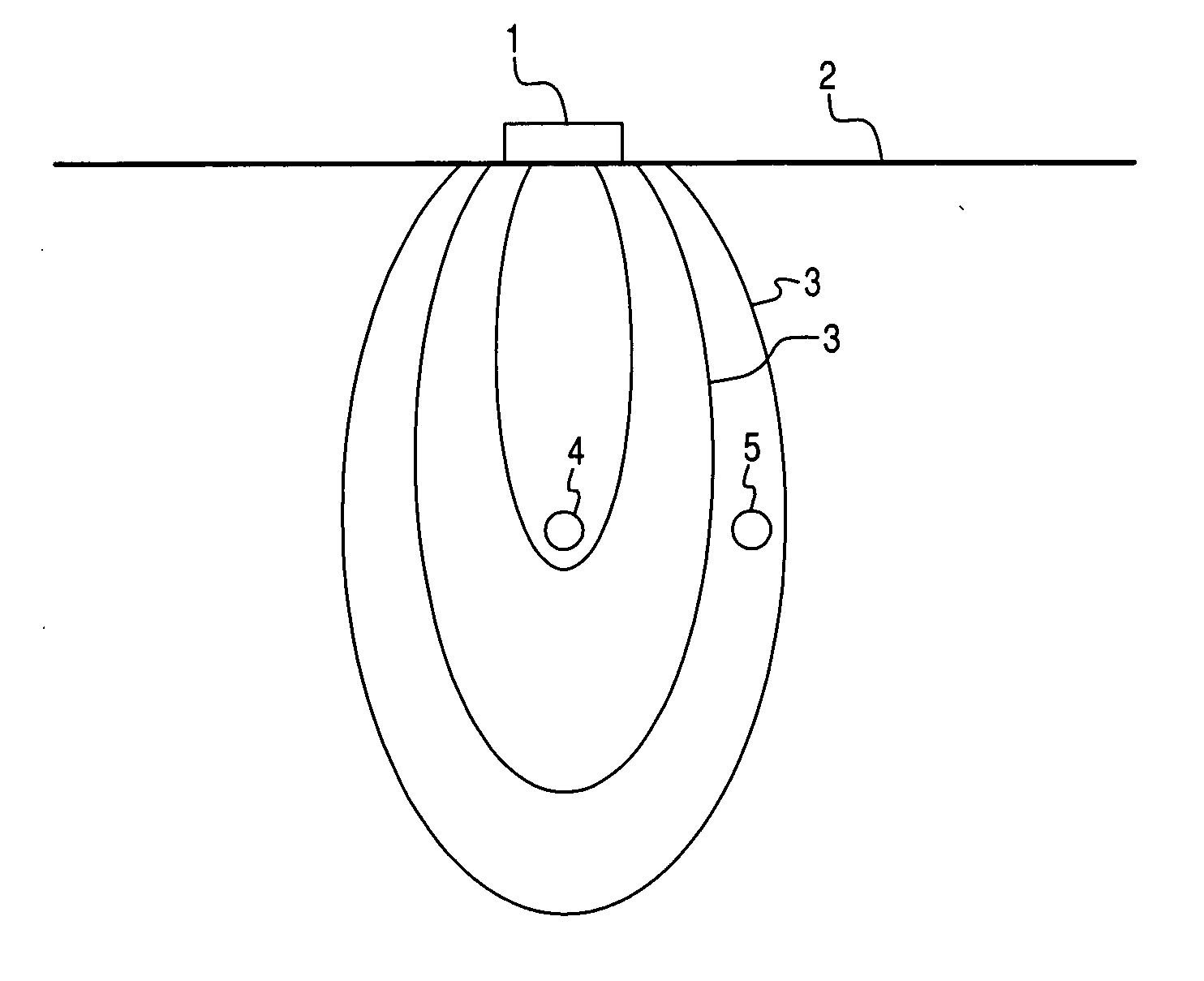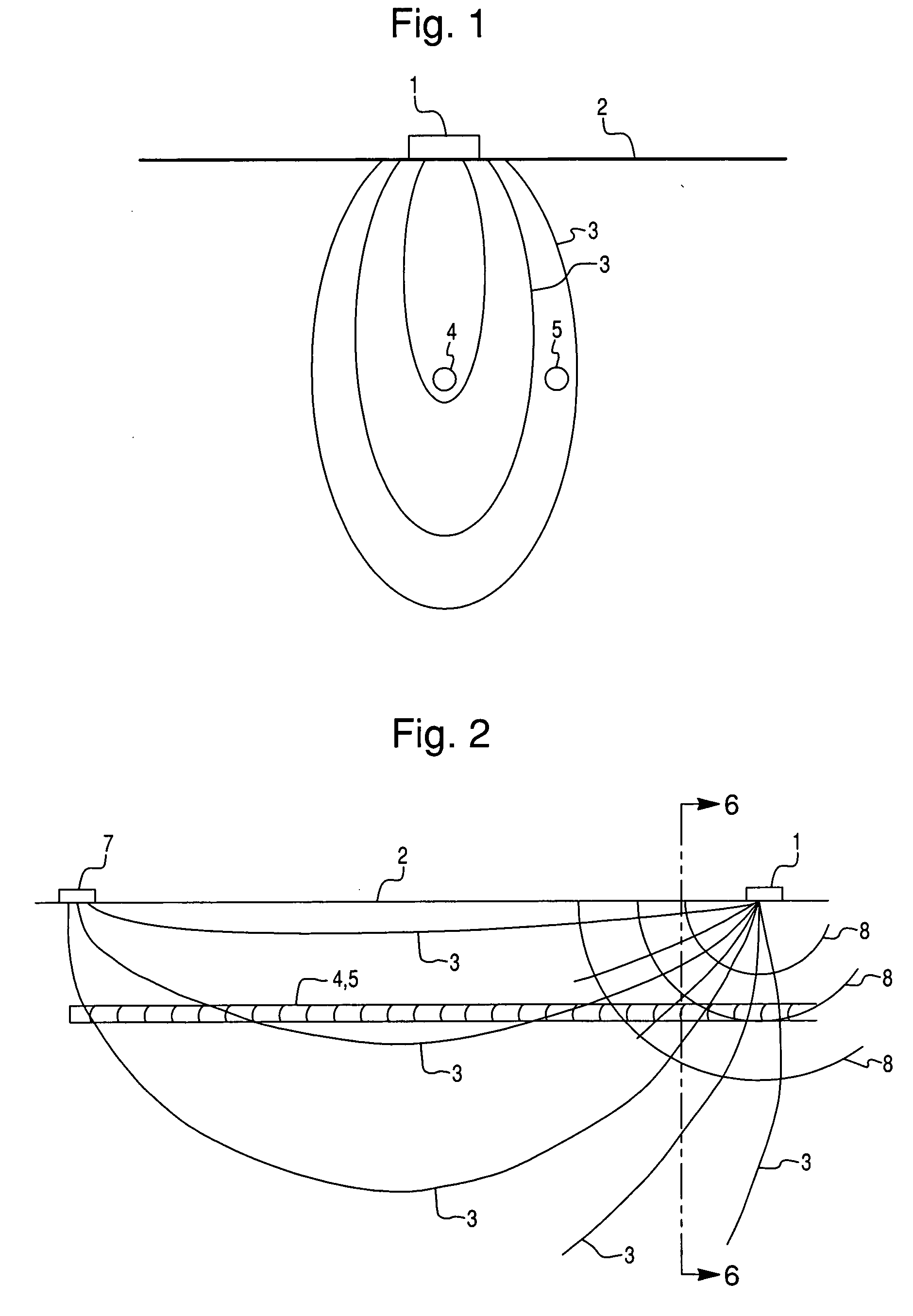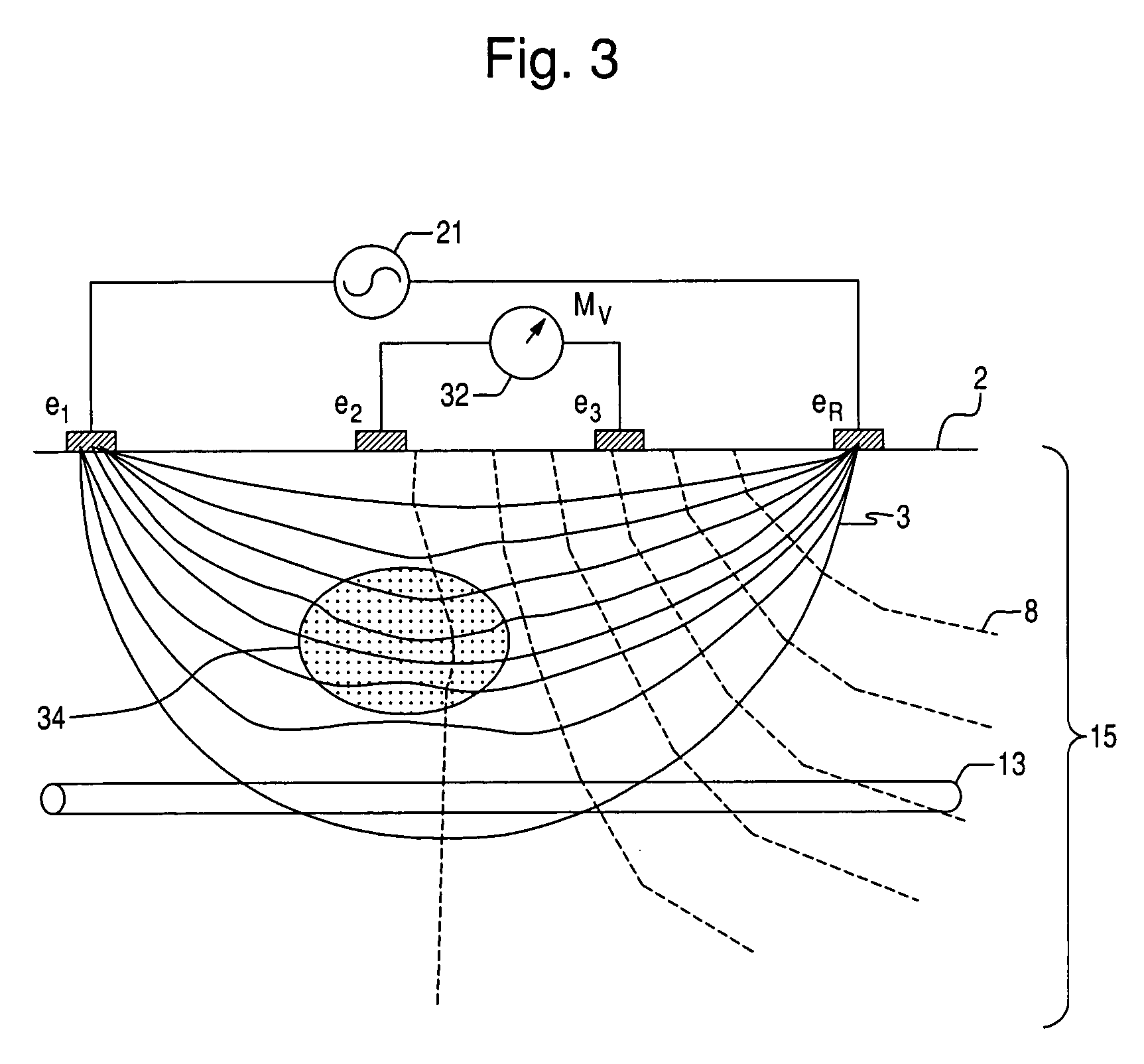Active electrode, bio-impedance based, tissue discrimination system and methods of use
a tissue and electrode technology, applied in the field of active electrodes, bio-impedance based, tissue discrimination systems and methods of use, can solve the problems of resolution and identification of subsurface structures, and achieve the effect of accurately locating and discriminating tissue substructures
- Summary
- Abstract
- Description
- Claims
- Application Information
AI Technical Summary
Benefits of technology
Problems solved by technology
Method used
Image
Examples
Embodiment Construction
[0107] Reference will now be made in detail to the present embodiments of the invention, examples of which are illustrated in the accompanying drawings.
[0108] The inventors of the present invention have determined that complex impedance changes occur in living tissue which affect electrical measurements performed over the tissues and which are related at least in part to the cell membranes. It has been further determined that tissue impedance exhibits inverse relationships to variable, increasing currents when studied at frequencies of less than or equal to about 10 kilohertz (kHz). FIGS. 1-2 are directed to considerations of a conductive medium to illustrate the principle of operation of the invention. However, as those of skill in the art will appreciate, most living tissue is non-homogeneous and anisotropic; thus, the present invention is directed toward detection of tissues in non-homogeneous, anisotropic as well as homogeneous, isotropic tissue.
[0109] In FIGS. 1 and 2, wavefo...
PUM
 Login to View More
Login to View More Abstract
Description
Claims
Application Information
 Login to View More
Login to View More - R&D
- Intellectual Property
- Life Sciences
- Materials
- Tech Scout
- Unparalleled Data Quality
- Higher Quality Content
- 60% Fewer Hallucinations
Browse by: Latest US Patents, China's latest patents, Technical Efficacy Thesaurus, Application Domain, Technology Topic, Popular Technical Reports.
© 2025 PatSnap. All rights reserved.Legal|Privacy policy|Modern Slavery Act Transparency Statement|Sitemap|About US| Contact US: help@patsnap.com



